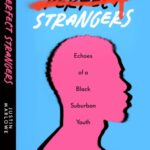American History X

FEATURED AUTHOR: Yecheilyah Ysrayl
Used with permission from the author
In High School, my US History teacher made us watch American History X, a 1998 American
Crime Drama surrounding Neo-Nazi Derek Vinyard, who goes to prison after murdering two
young Black men who tried to steal his car.
Upon Derek’s release, he finds that his baby brother Danny is hanging out with his old crew and
seems to be following in his footsteps. However, the Derek who returns home is not the Derek
who left. His traumatic experiences in prison and the kindness of a Black prisoner dramatically
shift his perspective. Now, he must fight to show Danny that racism is wrong and that there is a
better way.
I can appreciate the many profound lessons about the consequences of prejudice as an adult, but
the movie was disturbing for me as a young Black girl because my white male teacher didn’t
explain the film. There was no teaching. Instead, we sat there, our faces glued to the screen as we
watched Derek curve stomp a Black man, hold Klan rallies, and get sexually assaulted in prison.
Nothing was censored for these fifteen and sixteen-year-olds watching the many unsettling
scenes in front of them.
As I grew older, I discovered remarkable similarities between how Black History is taught in
America and my sophomore history class. I watched how, even in the actual world, we sat in
front of a television, unsure how we got here. American History X became a metaphor for
understanding how African Americans were educated. For generations, we have lived as a nation
in the shadows of civilization, our experiences relegated to electives and historical footnotes at
the bottom of textbooks that haven’t been updated in decades.
Thus, I developed a deep passion for self-education and re-education as I learned more about the
parts of our story that have been tragically whitewashed with the narratives of our bravery and
achievements omitted from mainstream historical accounts.
Dr. Martin Luther King Jr. is a prime example of someone whose humanity has been reduced to
the one negro who bridged the gap between Blacks and Whites. A Civil Rights hero who
successfully persuaded Black people that blending with white people was the best form of
themselves. If we integrated, we would be better people than if we had our separate
neighborhoods and enterprises, allowing us to control our own destinies. Not that segregation
was wrong, but that integration was preferable. That Blacks, when mingled with something else,
were made better.
We do not learn about Dr. King’s Poor People’s Campaign, dedicated to helping to feed the
nation’s poor, his telling Black people their blackness was beautiful, his belief in economic
freedom and establishing black businesses, or his regrets of having “integrated his people into a
burning house.” Instead, we are given a different version of King, a version that is perhaps easier
for white America to swallow.
This compels me to learn more and to talk about what I know so that the next generation does
not have to sit through films full of horrific acts of violence and racism as their introduction to
Black History. My writing aims to restore those parts of our narrative that have been left out and
abandoned.
I am fascinated by how my ancestors moved through their world, how those movements shaped
my world today, and how we’re establishing the groundwork for future generations. And I am
convinced that Marcus Garvey’s words ring true: “A people with no knowledge of their past
history, origin, and culture is a tree without roots.”
A tree without roots is a tree that does not exist since it has no place in which to root itself. This
has been the story of African Americans for far too long. Now, the time has come for us to
rediscover our roots so we are no longer a lost and hidden people.




